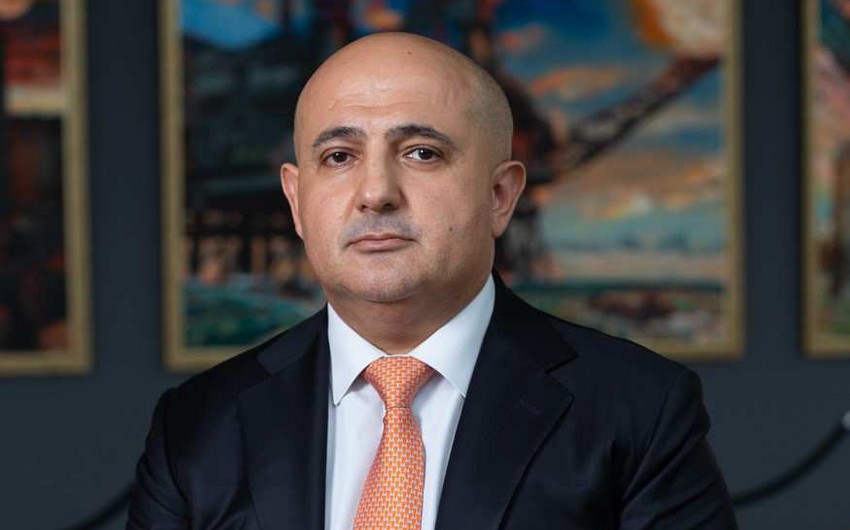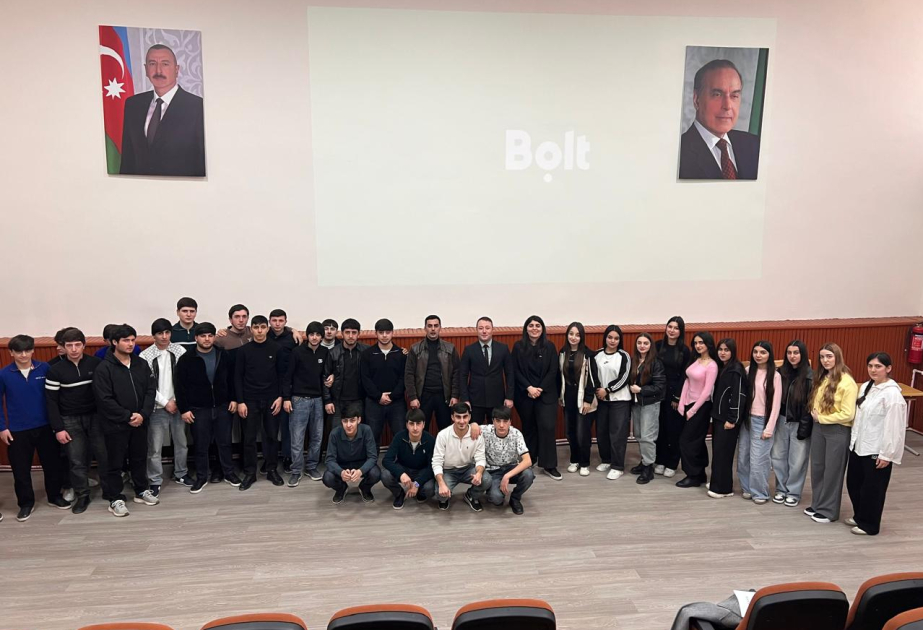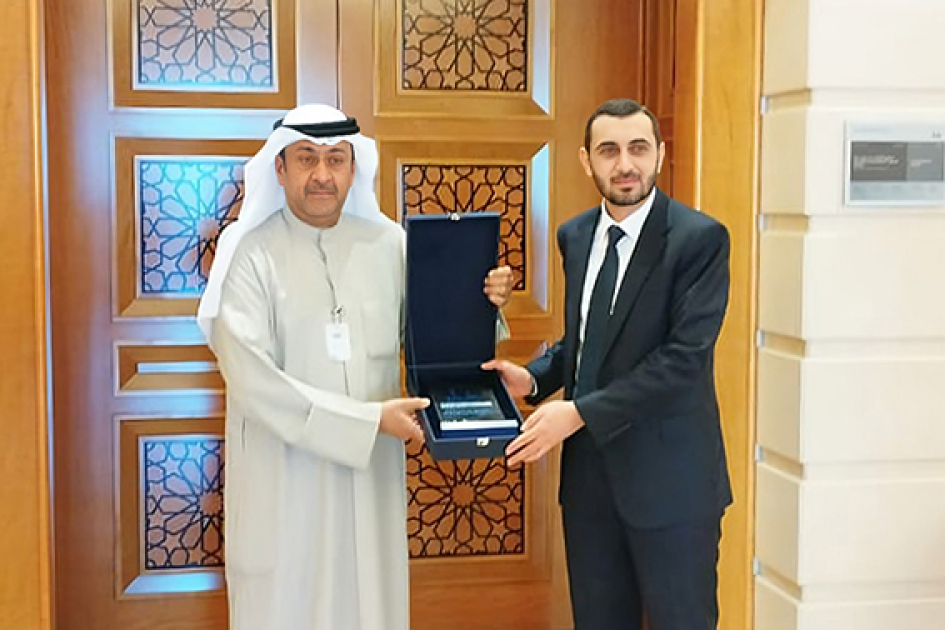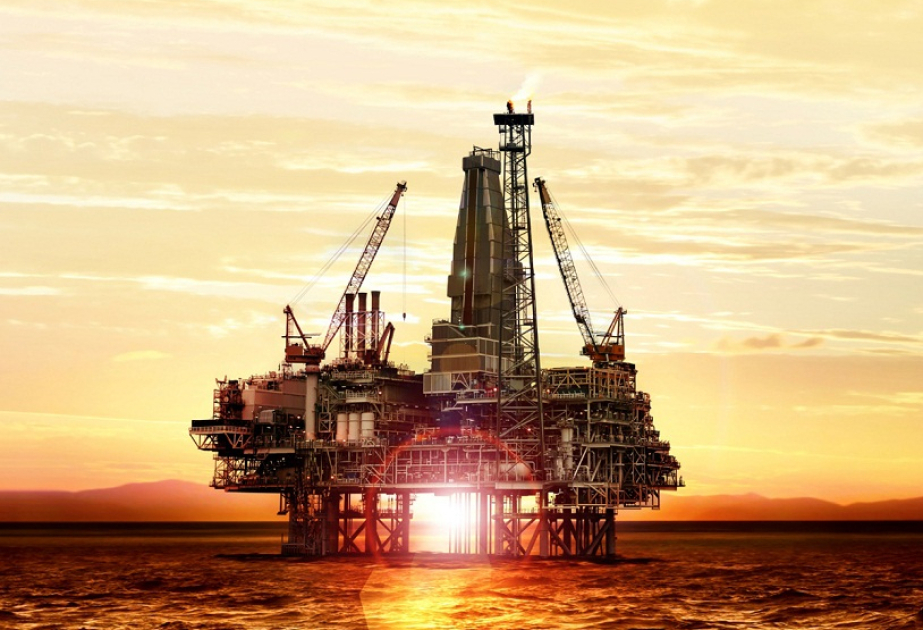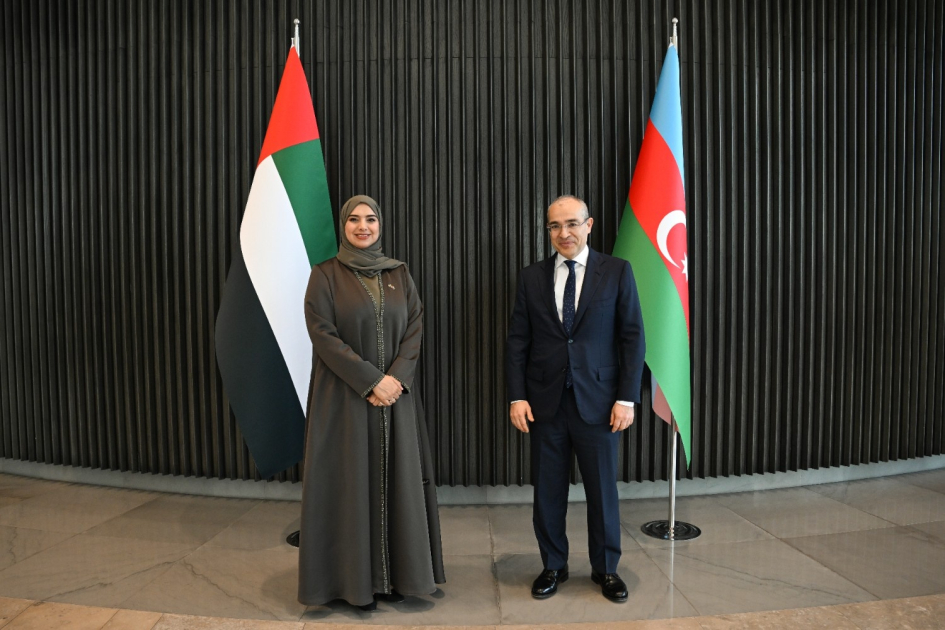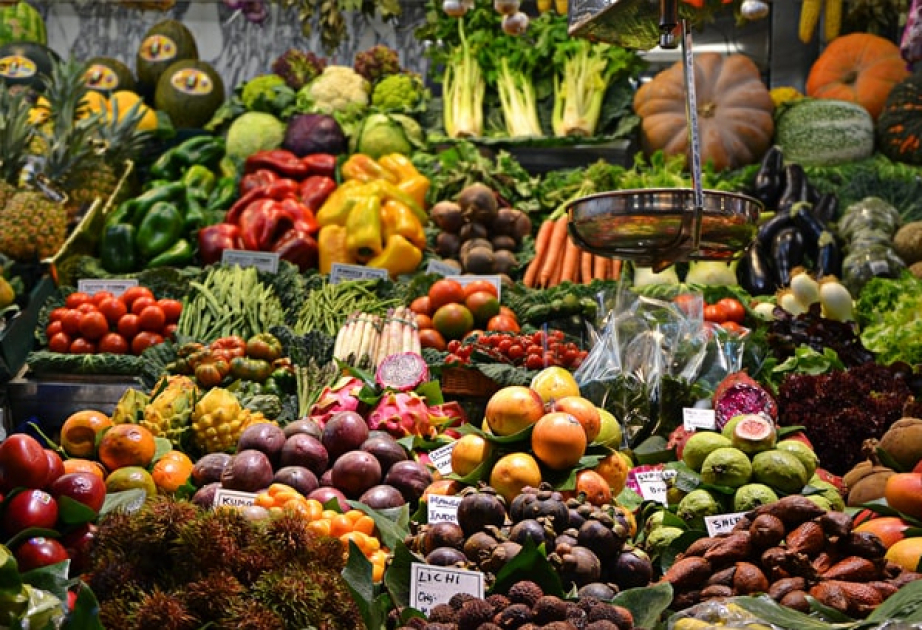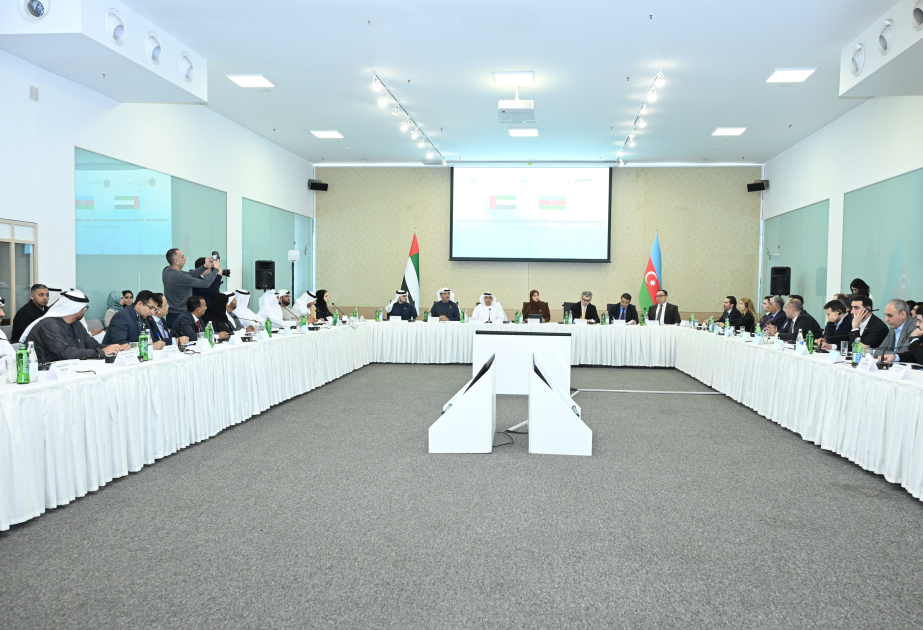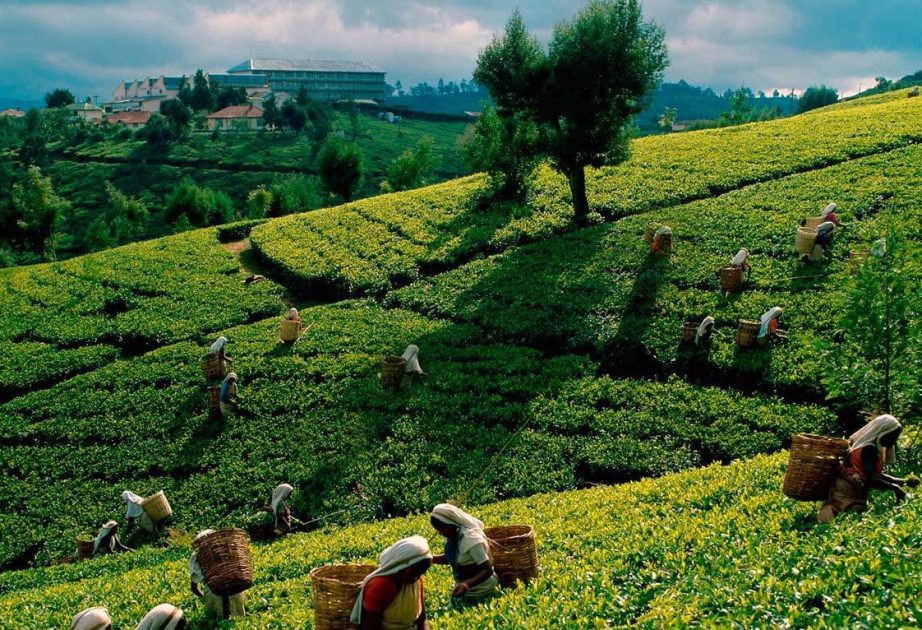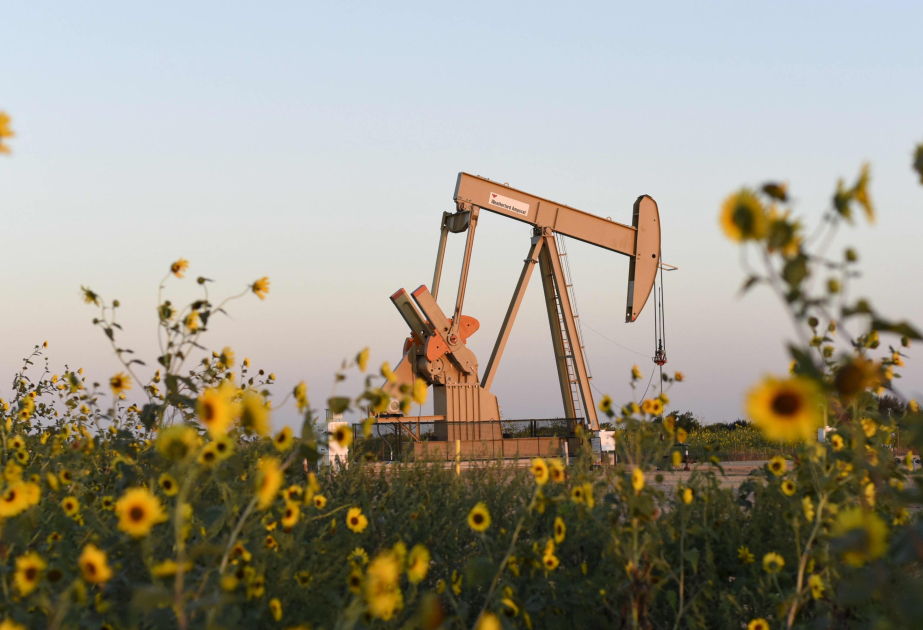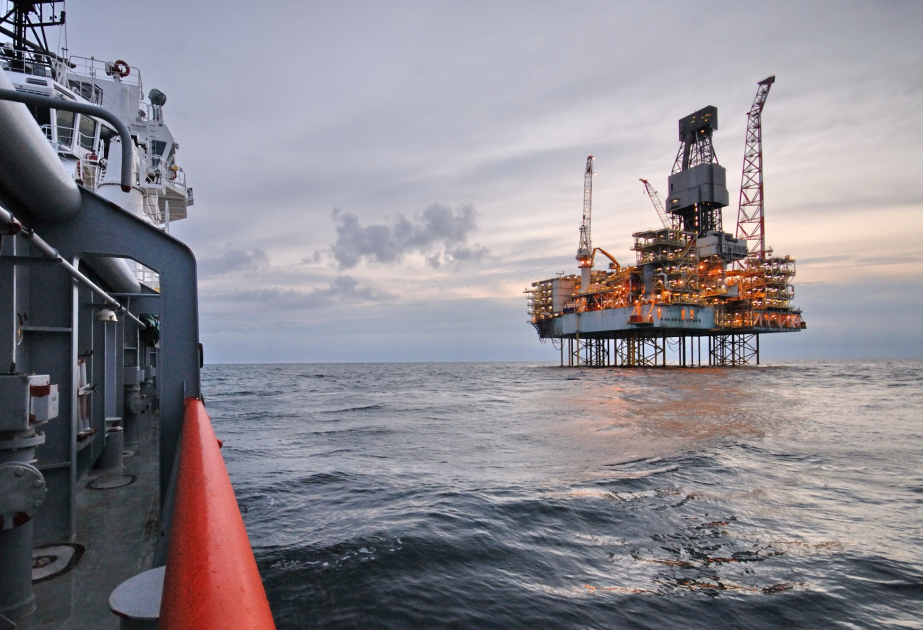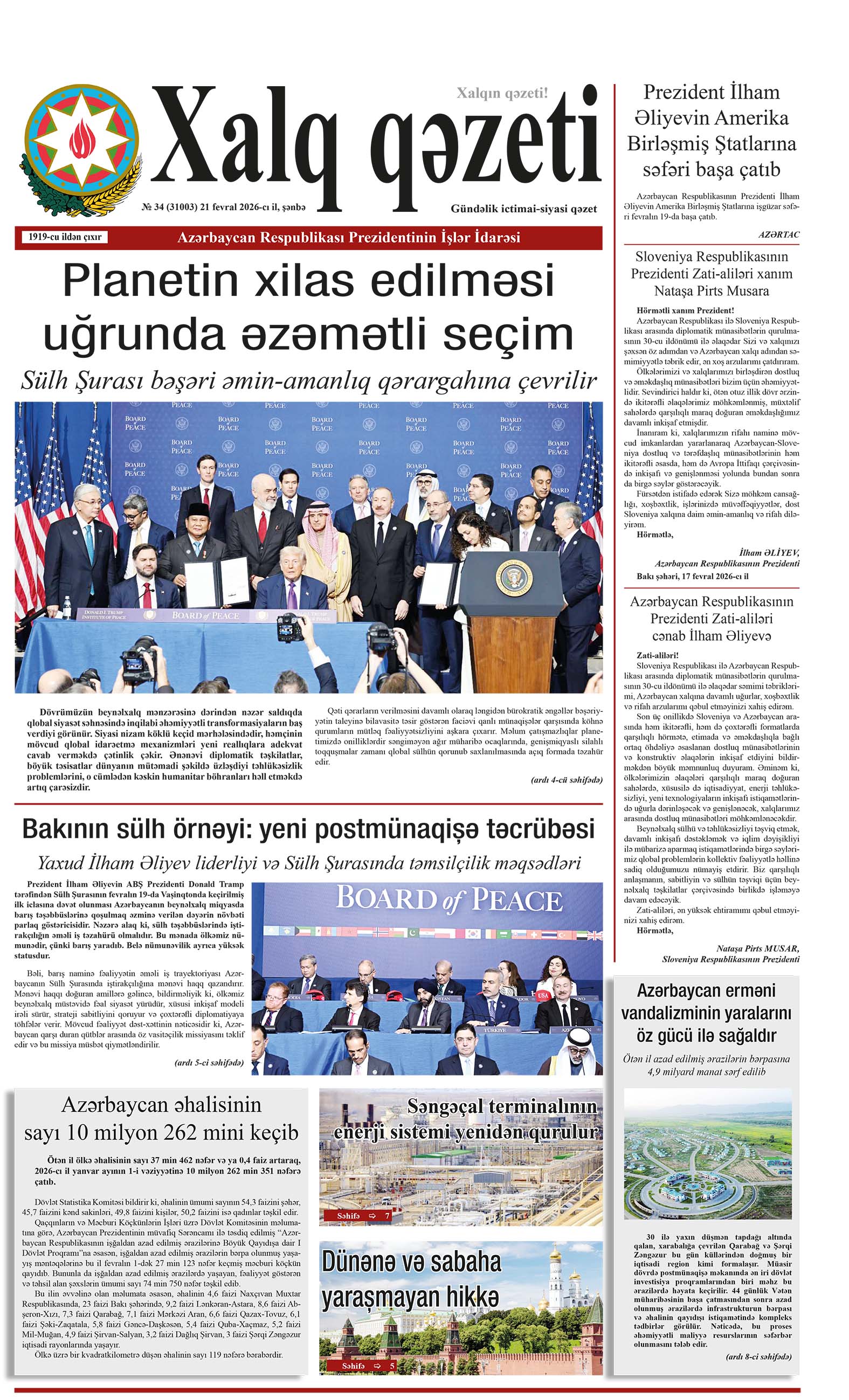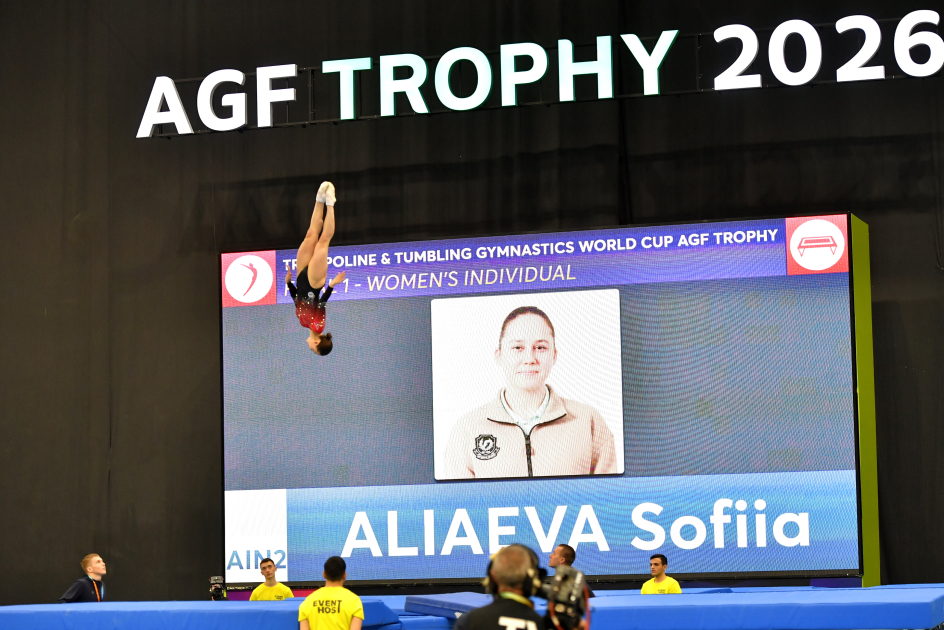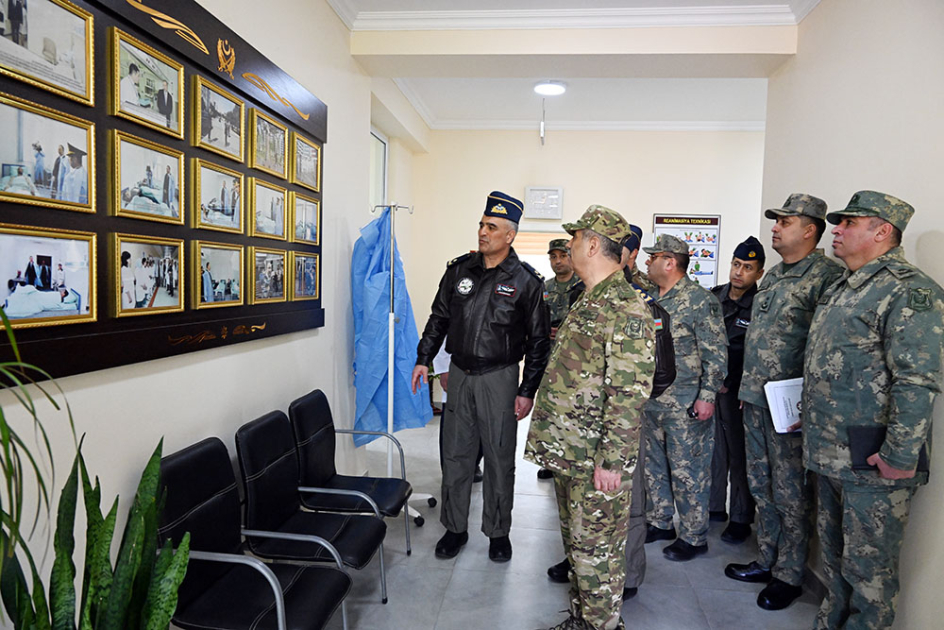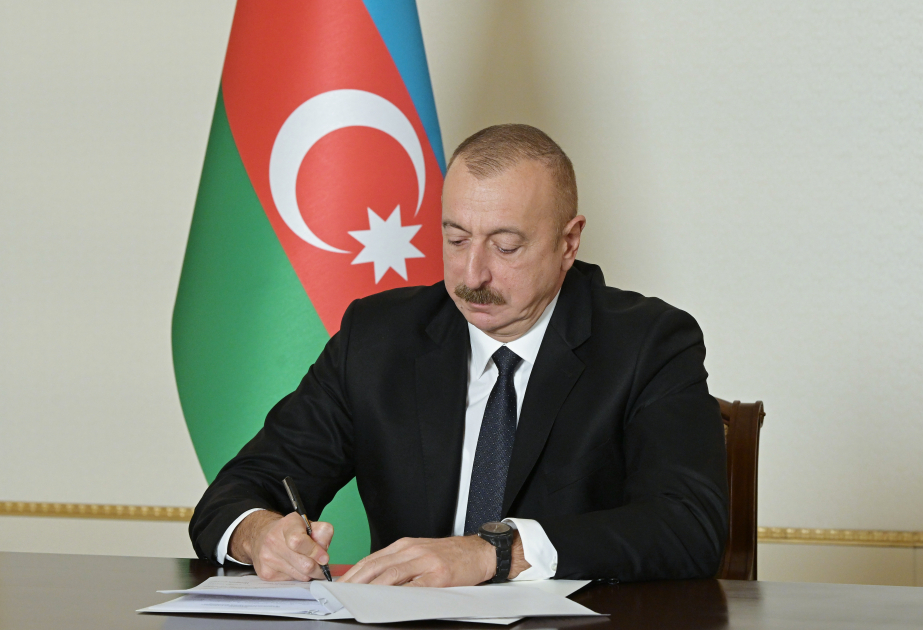The year 2024 was notable for Azerbaijan's economy, marked by significant achievements. For the first time, the country’s foreign exchange reserves surpassed $72 billion, highlighting Azerbaijan's sustainable economic policies and effective management model. The State Oil Fund of Azerbaijan (SOFAZ) played a crucial role in this accomplishment by bolstering its efforts to finance strategically important projects and ensure long-term financial stability.
Despite the instabilities in the global economic environment and the fluctuations observed in energy markets in recent years, the significant increase in the SOFAZ's assets has once again confirmed the effectiveness of its management principles and its contribution to the country's economy. Israfil Mammadov, the CEO of SOFAZ, talked to Report about the SOFAZ's achievements over the past year, the strategies employed to address global challenges, and the main targets set for 2025.
Here is the interview:
- What important innovations and moments were remarkable for the SOFAZ in 2024? How would you characterize the past year in terms of the fund's activities?
- Last year will be remembered as one of the most successful years for the SOFAZ. First of all, I should note that the fund's total reserves increased last year, and investment activities yielded high returns. Thus, the total reserves, which amounted to $56 billion at the beginning of the year, increased by up to 7% during the year, exceeding $60 billion for the first time.
During the first nine months of 2024 alone, the SOFAZ's investment income was $3.3 billion. The positive trend in financial markets continued in the last months of the year. The increasing momentum had a positive impact on the fund's investment portfolio. The positive dynamics demonstrated by stock assets in financial markets had a significant impact on the increase in portfolio returns during the year.
Last year, important steps were taken towards diversifying the SOFAZ's investment portfolio and evaluating investment opportunities in new regions. Within this framework, meetings were held and business trips to Gulf countries, China, and Italy were conducted throughout the year to establish mutually beneficial collaborations and explore new investment areas. I would like to emphasize the Memorandum of Understanding signed between the SOFAZ and Hassana Investment Company to explore investment opportunities in Saudi Arabia. This document contributes to the development of strategic cooperation between the two institutions by enabling the exploration of joint investment opportunities. Additionally, the SOFAZ invested $100 million in GEMS Education, an educational institution located in the UAE, last year and joined the consortium as a co-investor.
Throughout the year, the SOFAZ increased its investments in the Chinese yuan as part of its portfolio diversification strategy, ultimately reaching $1 billion. Additionally, for the first time, an investment equivalent to $200 million was made in Saudi Arabian riyals. Last year, the SOFAZ also increased the weight of gold in its portfolio, which acts as a hedge, purchasing more than 25 tons of gold in the first nine months of 2024.
The SOFAZ maintained its active operations in alternative investment instruments last year as well. Notably, the fund increased its focus on infrastructure investments in areas such as transportation and logistics, digital (data centers), energy, and the environment. Additionally, the SOFAZ continued its collaborations with the largest and most prestigious management companies globally. In 2024, the SOFAZ invested a total of $500 million in funds managed by market leaders such as GIP, EQT, Brookfield, PGIM, and CVC for real estate, private equity, and infrastructure assets.
In 2024, financing strategically important projects remained a primary focus for the SOFAZ, as in previous years. During the past year, the fund implemented financing for two educational programs within the budget expenditures, allocating 34 million manats ($20 million) for the State Program for Increasing International Competitiveness of the Higher Education System for 2019-2023 and 47 million manats (over $27.6 million) for the State Program for Youth Education at Prestigious Foreign Higher Education Institutions for 2022-2028.
2024 was also a remarkable year for the SOFAZ on the international level. The fund, a member of the International Forum of Sovereign Wealth Funds (IFSWF), which represents 46 prestigious sovereign funds managing assets worth over $8 trillion worldwide, was elected by majority vote as Deputy Chair of IFSWF's Board for a 3-year term at the Forum's 2024 meeting. Subsequently, the SOFAZ will serve as Chair for the following 3 years, meaning the fund will be involved in the management of this important organization for the next 6 years.
- The SOFAZ will continue to play a leading role, contributing approximately 38% to state budget revenues this year. This is achieved through the fund's oil and gas revenues and returns from its investment activities. How do you assess the role of oil revenues usage and returns from the SOFAZ's investment activities in maintaining fiscal stability?
- Economic diversification is crucial for maintaining a sustainable budget balance and ensuring more effective macro-fiscal policy in the country. Transfers from the SOFAZ to the budget play a vital role in maintaining this stability by serving as a reliable financial source and supporting long-term economic sustainability. To ensure the timely implementation of the country’s strategic goals and social programs, it has become necessary for the SOFAZ's transfers to the state budget to increase in 2025 compared to the previous year, or making up 38% of budget revenues.
Regarding the returns from the SOFAZ's investment activities, I would like to note that the past two years have been particularly successful for the fund, generating over $3 billion in investment income annually. This amount equals approximately 45-50% of the transfers to the state budget during those years.
However, it is important to acknowledge that the SOFAZ's investment returns depend on the value of the investment portfolio, and the portfolio structure is sensitive to fluctuations in global financial markets. Consequently, the performance is expected to vary from year to year.
In other words, as evidenced by international experience, returns from this type of activity are characterized by their volatility compared to other areas—while they can be high in some years, they can also be very low or result in losses in others. Nevertheless, in the medium to long term, investment returns can constitute a significant portion of the fund's budget expenditures.
- What are the main challenges facing the SOFAZ? How does the fund adapt to changing economic conditions such as energy transition and digitalization? How does it align with the sustainable development concept, and what measures does it take to reduce carbon footprint?
- The transition to sustainable energy and the development of green energy is currently one of the priorities of Azerbaijan's energy policy. President of Azerbaijan Ilham Aliyev has made the expansion of renewable energy sources usage in the country's energy sector as a priority task. In this context, I believe that achieving a balanced unity between the country's energy security, economic strength, and environmental sustainability is crucial.
The State Oil Fund of Azerbaijan has a unique role in laying the foundation for a sustainable, diversified, and environmentally responsible energy future in Azerbaijan. The fund manages oil and gas revenues based on principles of transparency and accountability, participating in ensuring long-term economic stability and financing projects that contribute to sustainable development. As a global sovereign investor, we have significantly increased our efforts to support energy transition and have implemented a growing number of renewable energy projects in our portfolio in recent years.
As the guardian of national wealth, within the framework of our mission and strategic vision, we have implemented certain measures for the integration of ESG (Environmental, Social, and Governance) principles into the investment portfolio. Based on the outcomes of comprehensive analysis, the SOFAZ's investment portfolio has shown lower carbon emissions compared to the benchmark. The fund's average transparency indicator for private equity and real estate asset types has significantly exceeded the average transparency indicator of investment funds in the market.
I would like to highlight a significant innovation in this area. Since the end of last year, we have started implementing voting at the General Meeting of Shareholders within the framework of using shareholder rights to promote positive changes in company management regarding the stock portfolio. This voting creates an opportunity for shareholders to express their position on various issues raised for discussion regarding company management. Through this tool, shareholders contribute to increasing transparency and accountability in companies and creating long-term value by influencing decisions.
Within the framework of the COP29 climate conference held in Baku, the SOFAZ, along with the International Forum of Sovereign Wealth Funds (IFSWF), organized a high-level panel themed "The Role of Sovereign Wealth Funds in Financing Energy Transition." This important event, included in the COP29 presidency's agenda, brought global leaders together to discuss sovereign wealth funds' (SWFs) support for sustainable finance development, transition to a low-carbon economy, and expansion of activities in this regard. Additionally, at another event held in the Azerbaijan pavilion, the integration of ESG principles into the SOFAZ's investment portfolio and achievements in this area were presented to the event participants.
- How does the SOFAZ help diversify the economy and which projects have been the most successful in non-energy sectors?
- The SOFAZ fulfills the objectives of collecting revenues from depleting natural resources and effectively managing these funds to ensure both the country's macroeconomic stability and preserve reserve funds for future generations. Firstly, I would like to note that macroeconomic stability is one of the key factors in ensuring sustainable and diversified long-term economic development in the country. In this context, transfers from the SOFAZ to the state budget support maintaining macroeconomic stability and create a foundation for economic diversification in the long term.
Additionally, the SOFAZ's growing reserves, which exceed 80% of GDP and are over 10 times higher than external public debt, serve as a "safety cushion" for the country's economy. This plays a crucial role in ensuring macroeconomic stability during possible economic shocks, as well as improving the country's position in international ratings and increasing attractiveness for investors.
At the same time, the SOFAZ supports the diversification and sustainable development of the economy in medium and long-term periods by financing strategically important projects. During its operation, the fund has allocated investments for the development of human capital in the country, financing strategic infrastructure projects, including transportation, energy, and other sectors.
I would like to list several projects that contribute to comprehensive development in the country. Since 2001, the SOFAZ has funded programs to improve the living conditions of our compatriots - refugees and internally displaced persons (IDPs) who were displaced from their homes. As a result of financing projects such as Samur-Absheron and Oghuz-Gabala-Baku with the SOFAZ's support, the drinking water supply for the population has been improved, and unsuitable lands have been irrigated and made suitable for agriculture.
Strategic energy infrastructure projects ensuring the export of the country's oil and gas revenues, including the Southern Gas Corridor, have been implemented with the fund's support. One of the main projects supported by the SOFAZ was the financing of the Baku-Tbilisi-Kars new railway line. This project facilitates the development of transport links and increased trade in the region. Support for the non-oil sector was also provided through the formation of the charter capital of the Azerbaijan Investment Company CJSC.
In addition, the SOFAZ continues to finance programs for thousands of Azerbaijani youth to study at prestigious universities worldwide as part of the "converting black gold into human capital" strategy, which President Ilham Aliyev consistently supports. Furthermore, as I mentioned earlier, in accordance with international practice, the SOFAZ ensures effective management of resources abroad through a diversified investment portfolio across various asset types, currencies, and regions. The increase in the value of the fund's investment portfolio and the resulting rise in investment income creates a foundation for these revenues to serve as an alternative source of income in the budget in the long term.
- Are there expected changes in the currency distribution of the SOFAZ's investment portfolio? If so, what is the reason? The fund has recently significantly increased the share of the Chinese yuan in its investment portfolio. What is this related to?
- The SOFAZ constantly reviews its portfolio by closely monitoring trends in global financial markets and makes necessary changes when required. This year, like last year, major reserve currencies such as the US dollar, British pound sterling, and euro will continue to dominate the currency distribution of the portfolio. Additionally, increasing diversification opportunities for other currencies remains in focus.
As for the increase in Chinese investments in the SOFAZ's investment portfolio, I would like to note that recently, global investors have been observed increasing their investments in China in their portfolios in global financial markets. Amid current events, special attention was paid to investments in the Chinese yuan last year as part of the SOFAZ's portfolio diversification. While investments in the Chinese yuan amounted to $550 million at the beginning of 2024, during the year, investments in this regard were increased by $1 billion, reaching $1.6 billion. By the end of last year, the total weight of Chinese investments in SOFAZ's investment portfolio exceeded 3%.
- The SOFAZ made a €1 billion deposit with the Central Bank of Türkiye. Is this deposit still active? If so, what is the annual income generated from it?
- In January 2022, the SOFAZ gradually deposited €1 billion with a 6-month repayment period in the Central Bank of Türkiye. As the terms of the mentioned deposit expired, it was renewed in 2022, 2023, and 2024.
Last year, the parties decided to gradually withdraw the deposit. This decision was made within the framework of both the Central Bank of Türkiye's strategy to reduce borrowing levels in foreign exchange reserves and the SOFAZ's strategy to replace short-term deposits with longer-term bonds in the context of falling interest rates. Specifically, €800 million of the €1 billion deposit was returned to the SOFAZ in July 2024 upon maturity, and €200 million was returned in October 2024 upon maturity. These funds were then appropriately invested in fixed-income securities within the framework of the SOFAZ's investment strategy.
- The SOFAZ acquired a 3% share in Russia's VTB Bank. Is this shareholding still maintained? If so, what have been the dividend earnings received so far, and what are the dividends for 2024?
- Since 2012, the SOFAZ began investing in shares for investment portfolio diversification. Within this framework, as you mentioned, in 2013, 3% shares of VTB Bank, one of Russia's largest financial and systemically important institutions with assets of nearly 26 trillion rubles (2nd in the Russian market), were acquired. Against the background of the above, I would like to state that no additional investment in VTB Bank is planned for the near future. Regarding dividends, since the date of investment in VTB Bank, 3.9 billion Russian rubles in dividends have been paid to the SOFAZ. I would particularly like to note that since 2021, dividend payments have not been made according to VTB Bank's internal dividend policy.
- What principles underlie the SOFAZ's investment strategy? How does the fund manage risks?
- In international practice, sovereign funds carry out stabilization, savings, and development functions in accordance with the characteristics of the country's economy and their budget obligations. The SOFAZ builds its investment strategy based on a relatively conservative approach that maintains a balance between risk and return, both to protect macroeconomic stability and ensure the preservation of reserve funds for future generations.
Generally, in line with international practice, the SOFAZ diversifies its investment portfolio by investing across different asset types, currencies, and regions to manage market and currency risks. Additionally, the fund has established several requirements regarding risk management in its investment portfolio, including parameters for interest rates, credit risk, liquidity risk, and other factors.
Moreover, The SOFAZ's regular scenario planning and stress testing allow for more flexibility, implementing timely preventive measures, and revising our strategy when necessary. The fund invests in fixed-income securities to ensure liquidity in the investment portfolio, taking into account annual transfers to the budget. Additionally, the portfolio includes relatively riskier investment instruments such as stocks and real estate that promise high returns in the medium and long term. At the same time, as an effective means of protection against inflation, the share of gold in the portfolio has been increased to preserve the value of reserves, especially during periods of economic uncertainty and increasing geopolitical risks.
As a result, such diversification of the portfolio's financial assets, maintaining the balance between risk and return, is aimed at achieving long-term investment objectives.
- What are your expectations and targets for different activity areas of the SOFAZ for 2025?
- First of all, in accordance with the SOFAZ's goals and objectives, timely execution of the planned transfer to the state budget is envisaged for 2025 to ensure macroeconomic stability. Additionally, the financing of approved foreign education projects within the fund's budget will continue.
Regarding the SOFAZ's investment activities, I would like to state that the fund aims to shape its investment activities by evaluating trends in global financial markets and the geopolitical situation. In this context, the SOFAZ plans to make certain changes in its investment activities to increase flexibility and take timely preventive measures against certain risks. This includes expanding portfolio diversification by evaluating favorable investment opportunities across different asset types, currencies, and regions, as well as increasing the portfolio's resilience to geopolitical risks.
As for the bond and money markets sub-portfolio, as in previous years, it is planned to maintain a significant level of liquid assets. In recent years, the high inflation observed in financial markets is expected to show a downward trend and normalize, which in turn can be considered favorable for our bond portfolio.
Our stock portfolio has achieved returns of more than 20% annually over the past two years. The continued interest and demand from investors in technology and IT sectors, more specifically in global transformative trends such as artificial intelligence, robotization, semiconductor and chip technologies, and others, which have been the main contributors to this growth, creates a foundation for optimistic forecasts in stock markets for 2025 and beyond.
We plan to expand our investment activities in relatively illiquid asset types such as real estate, infrastructure, private equity funds, etc. In particular, broader investments are planned in physical infrastructure assets in areas such as renewable energy, transportation, and digital sectors, which perform an irreplaceable function for countries' economic and social activities and are independent of macroeconomic and other factors. Our main goal is not to focus on speculative and short-term attractive directions, but rather to target relevant areas by identifying global economic, demographic, and technological trends and sectors in the medium and long term.
The SOFAZ aims to carry out its activities more actively in the international arena in line with its goals and mission. Strengthening relations with other sovereign funds within the framework of IFSWF, which is an important platform in this regard, promoting sustainability initiatives in the IFSWF, and creating an inclusive environment for sovereign funds will be among the main objectives. It is possible to implement large-scale joint investments by benefiting from the experience of prestigious investors and to sign new mutual cooperation documents.
Besides the above, the reforms carried out within the framework of the SOFAZ's internal transformation in recent years have not only improved the fund's corporate governance system but also formed the basis of its long-term development strategy.
In this context, fundamental changes have been made to the corporate governance system, advanced management approaches have been implemented by studying international experience to ensure more flexible and functional management, as well as automation and digitalization of work processes have been provided, and new reporting mechanisms have been implemented. These steps have created the main foundation that ensures the continuous development of processes aimed at the SOFAZ's strategic goals.


